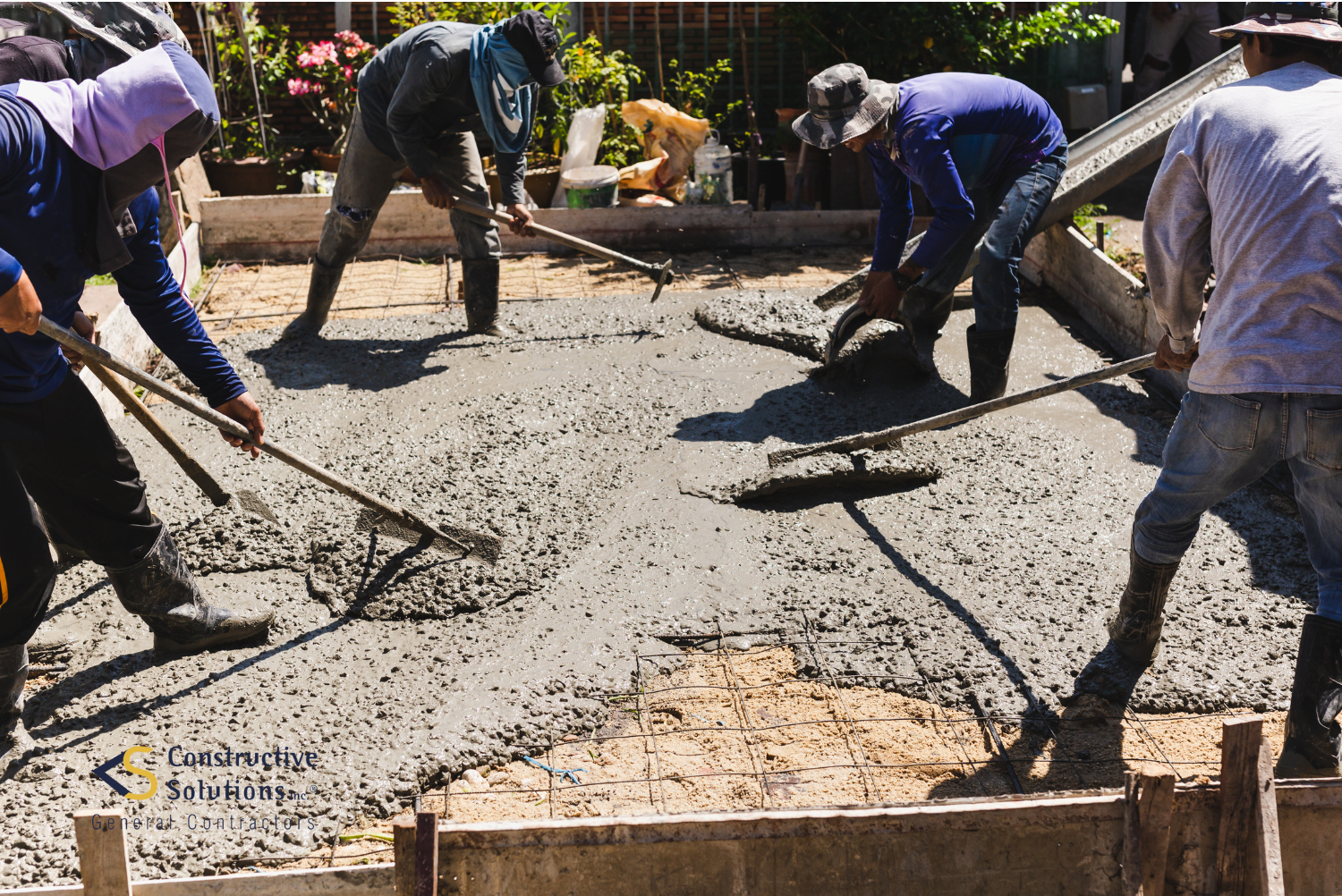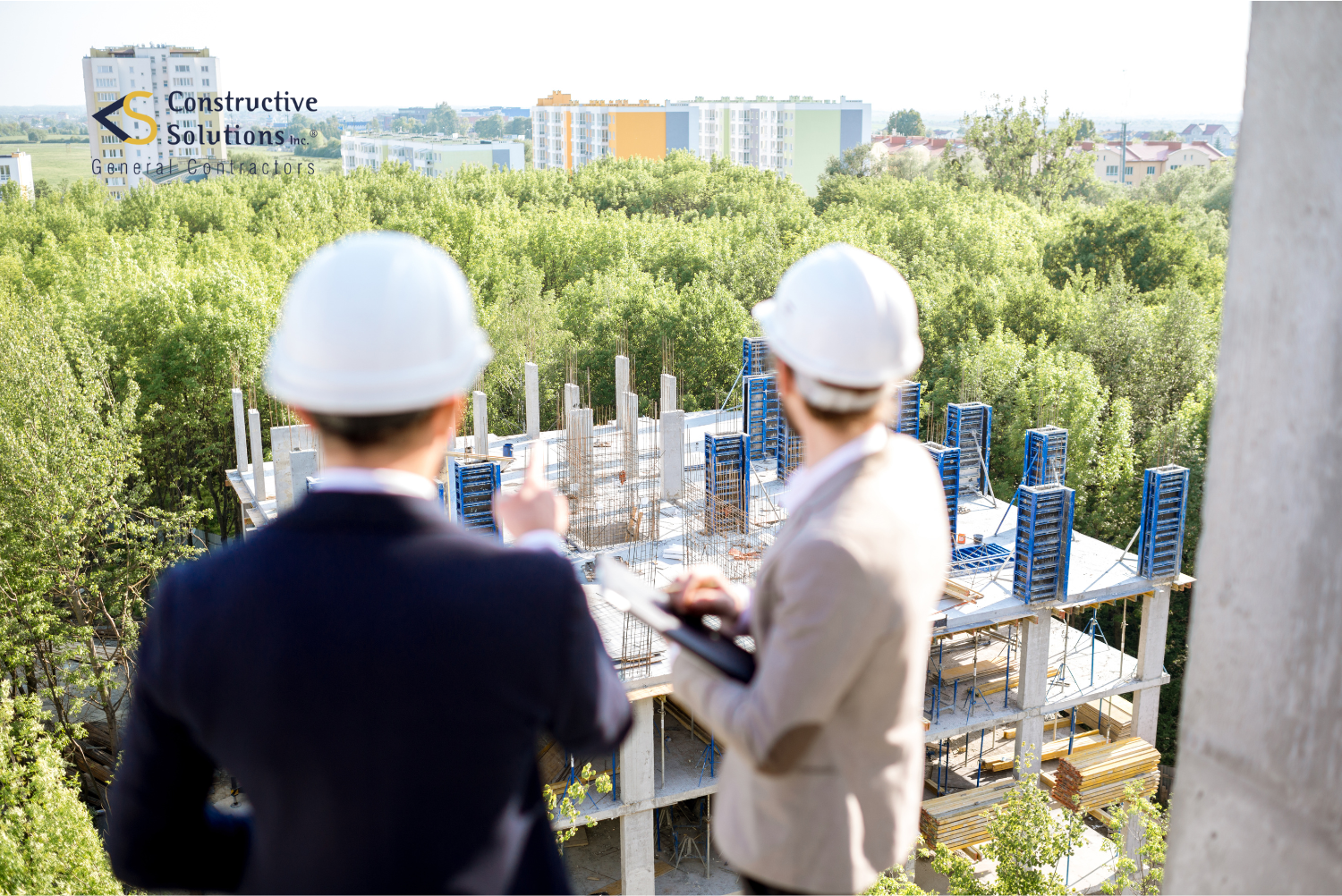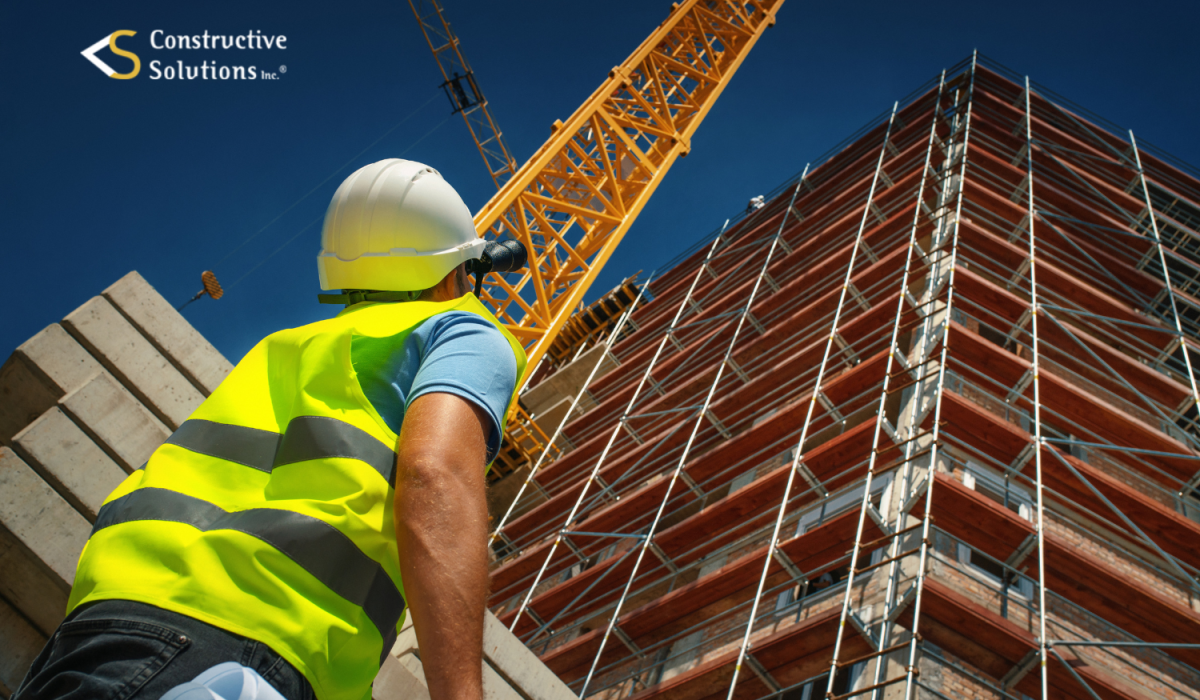How Experienced General Contractors Prevent Construction Delays
Delays in construction projects are common, but they don’t have to derail your project, especially in commercial construction, where time is money, and time lost can severely impact your bottom line. On average, 72% of global construction projects face delays, extending timelines by 38%, while 63% exceed their budgets, with costs rising by 24%. Rework also impacts performance, contributing an additional 6% to overall project costs.
As experienced commercial general contractors, we have learned that preventing delays isn’t about avoiding every problem, it’s about anticipating them. Through years of hands-on experience managing complex builds, we have developed proven systems to keep projects moving forward.
In this blog, we will outline the most common causes of construction delays and share our effective strategies to stay on schedule and protect our clients’ investments.
Types of Delays in Construction Projects
Construction involves a vast network of moving parts: permits, engineers, subcontractors, materials, labor, inspections, and logistics. One missed deadline or communication lapse can trigger a chain reaction that pushes back every subsequent task. This is particularly true in commercial construction, where project complexity is significantly higher than in residential builds.
Delays on construction projects are often classified into categories such as:
Excusable vs. Inexcusable Delays
- Excusable delays in commercial construction projects are caused by events outside the contractor’s control, such as extreme weather, natural disasters, or government shutdowns. These typically warrant schedule extensions without penalty.
- Inexcusable delays arise due to contractor-related issues like poor scheduling, inadequate staffing, or miscommunication. These may result in financial penalties, disputes, or litigation.
Critical vs. Non-Critical Delays
- Critical delays affect the project’s completion date by disrupting tasks on the critical path. They must be addressed immediately to prevent schedule overruns. For example, a delay in obtaining building permits can halt the entire project timeline.
- Non-critical delays impact secondary activities that don’t directly affect the overall completion date and may be recoverable through resequencing.
Compensable vs. Non-Compensable Delays
- Compensable delays entitle the general contractor to additional time or money, typically resulting from owner-related changes or unforeseen site conditions.
- Non-compensable delays offer schedule relief but no financial compensation, which is common with weather or third-party delays.
Understanding the nature and impact of each delay type helps business owners and general contractors align expectations, prepare documentation, and take preventive action early.
Common Causes of Construction Project Delays

While every commercial build is different, certain causes of delays in construction projects show up repeatedly. The following are some of the top reasons behind construction delays:
1. Inaccurate Project Planning and Scheduling
One of the leading causes behind construction project delays is inadequate or poor planning. Vague scopes, unrealistic timelines, and a lack of a clear critical path often result in crews arriving before site conditions are ready. Without a detailed, milestone-based schedule, even minor coordination gaps can create cascading delays across every phase of the project.
2. Design Changes and Scope Creep
Late-stage changes to the design, whether due to client requests or regulatory updates, can severely disrupt the construction timeline. Each adjustment requires reevaluation, approvals, and potential rework. Without a formal change order process, even a small scope increase can result in major delays on construction projects and inflate costs significantly.
3. Labor Shortages and Workforce Mismanagement
A shortage of qualified labor continues to challenge the construction industry. The Associated Builders and Contractors revealed that the industry will need to attract an estimated 439,000 new construction workers to meet current project demands. Even when available, construction crews are often overbooked across multiple sites. If a subcontractor doesn’t show up on time, key tasks can’t move forward. Ineffective labor planning, high worker turnover, and insufficient supervision can affect the project schedule.
4. Material Procurement and Supply Chain Disruptions
Long lead times, supplier backlogs, or transportation delays can bring construction sites to a standstill. When materials like steel, mechanical units, or specialty finishes are delayed, entire trades may sit idle. Contractors without contingency sourcing strategies often see their construction projects delayed unnecessarily due to avoidable procurement issues.
5. Weather Delays on Construction Projects
Adverse weather is considered the most common and unavoidable cause of delays in the construction industry. Heavy rain, snow, or extreme heat can halt exterior work like concrete pouring, roofing, or excavation. These delays in construction projects are best managed by building in weather buffers and having flexible work sequencing strategies that keep crews productive despite conditions.
6. Permitting and Regulatory Delays
Getting all the required permits approved as zoning, environmental, and building, can take weeks or months. In some jurisdictions, even minor corrections can reset the clock. Without early coordination with permitting authorities, projects risk being stalled before they even start construction.
7. Cost Overruns and Budget Constraints
Unexpected cost escalations can halt or delay construction projects midstream. A recent report says that 57% of general contractors and 78% of subcontractors experienced work delays or stoppages due to delayed payments. Rising material prices, inaccurate initial estimates, or financing issues often force contractors to pause work. Without proactive cost tracking and contingency planning, budget overruns can delay project completion.
How Experienced Contractors Prevent Construction Delays

After decades in the field, we have learned that the best way to prevent delays in construction is through proactive management and precise communication. Here are ten proven methods experienced general contractors use to reduce the risk of construction delays:
1. Thorough Pre-Construction Planning
Every successful project begins with detailed preparation. We conduct comprehensive feasibility studies, align on project scope, and build a timeline based on real-world conditions. On a recent warehouse project, early planning helped us identify a utility relocation issue that would have delayed foundation work by weeks, allowing us to adjust plans early.
2. Realistic and Data-Driven Scheduling
We rely on historical data and vendor performance records to build schedules. For example, if we know a supplier’s average delivery time is 3 weeks (not 1), we schedule accordingly. This eliminates guesswork and sets achievable milestones.
3. Early Permitting and Regulatory Coordination
Experienced contractors begin the permitting process months in advance. For a healthcare building in the San Francisco Bay Area, we submitted architectural plans to the city during pre-construction, shaving 6 weeks off the review cycle by addressing potential issues early.
4. Diversified Supplier Network
We maintain relationships with multiple vendors for critical materials, protecting our projects from lead time fluctuations. During a recent HVAC shortage, we fulfilled an order using an alternate distributor we had vetted beforehand, avoiding a 4-week delay experienced by other contractors.
5. Prequalified and Reliable Subcontractors
We partner only with trusted subcontractors who meet our performance and compliance standards. Each contract with the subcontractor includes liquidated damages clauses and scheduling expectations, keeping accountability high and reducing the risk of scope creep or labor-related delays.
6. Flexible Material Options
We always identify alternative material options. On one office renovation, we swapped out a specified imported Italian floor tile with a comparable high-quality domestic porcelain tile approved by the architect when the original supplier caused a 4-week shipping delay, keeping our schedule intact.
7. Technology for Scheduling and Communication
Using platforms like Procore and Buildertrend, we centralize all schedules, RFIs, submittals, and updates. These tools give clients, architects, and subs real-time access to job progress, streamlining collaboration and allowing faster decision-making, which is essential for preventing delays in construction projects.
8. Weather-Adjusted Work Plans
Mother Nature is unpredictable, but we plan for her. For projects in weather-sensitive regions, we adjust task sequencing, front-loading interior work during storm seasons and build buffer time into exterior phases. This approach saved us 10 working days on a hospitality job impacted by hurricane season.
9. Single Point of Contact for Decision-Making
Each project has one project manager responsible for all updates and changes. When a steel delivery was delayed, our lead quickly worked with the architect and client to source an alternative, resolving the issue within 24 hours and keeping the project on schedule.
10. Regular Progress Meetings
Regular coordination meetings keep everyone aligned. We hold weekly check-ins with clients, architects, engineers, and trades to review progress, flag issues early, and agree on next steps. These touchpoints allow us to address potential delays before they impact the critical path.
Managing Construction Delays When They Happen

Even well-run building projects can encounter setbacks. Here’s how experienced contractors effectively manage delays in construction projects:
- Identify the Cause Quickly
Determine whether the delay is due to weather, labor, materials, design changes, or inspections. Identifying the delay as excusable or inexcusable is necessary to choosing the right response. - Evaluate Schedule Impact
Analyze whether the delay affects critical path activities. If it does, adjust milestone dates and resequence dependent tasks to keep overall disruption minimal. - Communicate Immediately
Notify all stakeholders, including clients, architects, and subcontractors, about the issue. Share updated timelines, discuss implications, and propose recovery solutions to maintain trust and transparency. - Apply Recovery Strategies
Implement corrective actions such as reassigning crews, authorizing overtime, adjusting sequences, or switching to alternate materials (if pre-approved) to recover lost time. - Document Every Detail
Keep records of delay causes, conversations, schedule changes, and actions taken. This documentation supports potential construction delay claims and reduces legal risk. - Stay Focused on Quality and Budget
Even while accelerating, ensure quality control remains intact. Avoid shortcuts that could compromise the build or create future warranty issues.
By following these steps, seasoned contractors can turn potential project delays into manageable setbacks, protecting timelines, budgets, and client relationships.
Final Thoughts
Construction delays may never be completely unavoidable, but they are certainly manageable. With clear communication, strategic planning, and experienced leadership, most issues can be resolved before they escalate. For business owners, partnering with an experienced general contractor is one of the smartest investments you can make. Hire a commercial contractor who plans ahead, keeps everyone aligned, and takes accountability from day one. That level of expertise is what keeps your project and your business moving forward.
At Constructive Solutions, Inc., we focus on strategic planning and project management to reduce the risk of costly delays. With a proven track record in delivering commercial buildings in the San Francisco Bay Area on time and budget, we thrive on surpassing our clients’ expectations every single time.
Contact us today!



